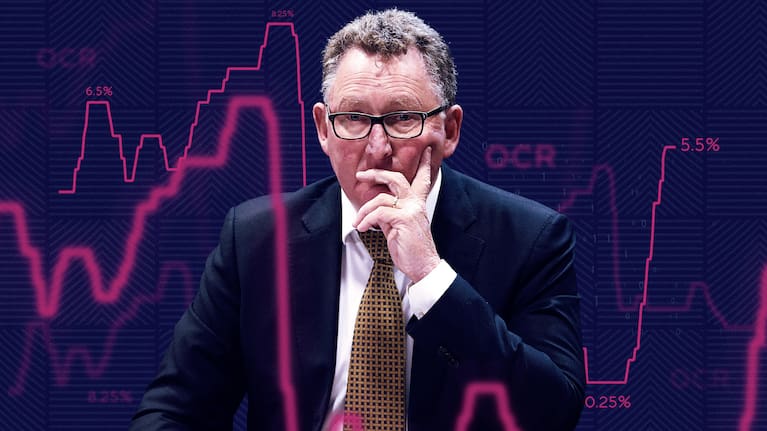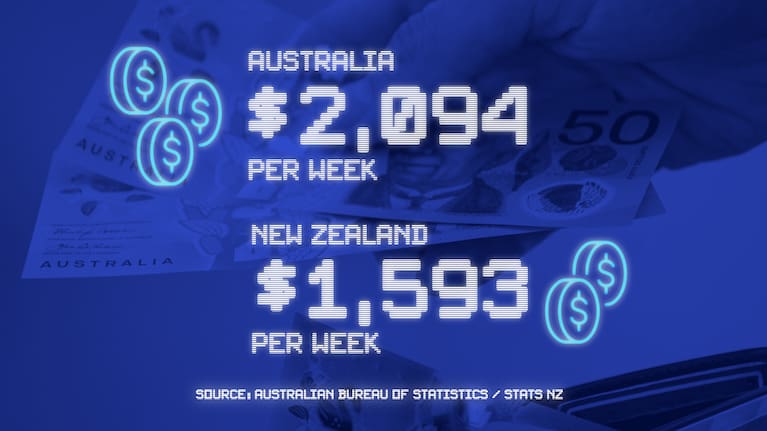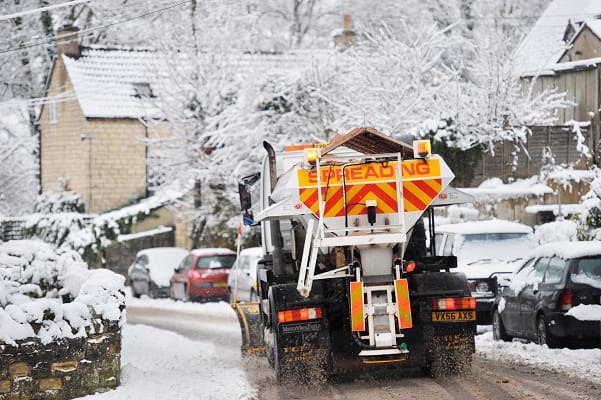Jobs
Sorry New Zealand, I’m heading overseas because I need a job

After redundancy and a soul-destroying effort to find another job, 30-something Natalia Sutherland is moving to London. The jobs are just not here, she writes.
As yet another New Zealander buying a one-way ticket to London, you sometimes feel almost guilty, as if you’re deserting the place. But it’s not personal Aotearoa, it’s economics. Simply put, for Kiwis to pay less on their mortgages and have a little extra cash due to falling inflation, I need to be out of a job.
And for the government and taxpayers who fork out for Jobseeker Support, it’s cheaper that I’m out of the country. Economists will tell you: unemployment is just the collateral damage of taming a hot unsustainable job market and tackling the beast that is high inflation.
I know it’s not personal – it’s business – and that’s why I’m packing my life up and leaving New Zealand in search of work.

Sitting in an office reception room with sweaty palms, muttering my “strengths and weaknesses” under my breath while I wait for yet another interview has become too exhausting. Reading another company’s mission statement while scrolling through the LinkedIn profiles of the hiring managers, has become too exhausting. Attending workshops on tailoring my CV so it “stands out” in the ever-thickening pile, speaking to countless recruiters who have “no jobs on the books,” picking up freelance shifts that barely pay my rent – all of it has become too exhausting.
I’m done. I’m defeated. I know New Zealand doesn’t have work for me, because that’s the economy right now. I accept it. It’s not personal. But it’s impossible not to be personally impacted.

The jobs are just not there
If you have a secure job in New Zealand and can comfortably pay your mortgage you probably aren’t aware of how grim the situation currently is for many Kiwis.
Right now, according to the Ministry of Social Development over 200,000 Kiwis are on Jobseeker Support. Everyone’s story is different, but many of those filling out MSD forms found themselves in this situation because of redundancy.
I was one of 300 people working at Newshub (WarnerBros/Discovery) who were made redundant earlier this year – and large numbers of people at other media organisations lost jobs at around the same time. Alongside us, around 4000 people (and that number is still rising) in the public sector were made redundant and private companies, like Spark, began reducing their head count. Just this week Oji Fibre Solutions Penrose mill announced 72 job losses. According to BWA Insolvency, 700 business insolvencies were reported between April and June – the highest since 2016 in a single-quarter.

Just as thousands of Kiwis were suddenly out of work, job advertisements plummeted by 35 percent, according to Seek. It’s easy to see why Treasury is predicting unemployment will peak at 5.2 percent next year.
I’m happy for your friend, Sarah
“But my friend Sarah was made redundant, and she managed to find a job,” I hear you say.
That’s great for Sarah, I’m glad she got a job. But she was the one of possibly hundreds that applied for that role and for those who didn’t get it, well they’re most likely still looking for work.

Being unemployed is brutal. The reason for job cuts is usually clinical and cold – “you’re not making us enough money”, or “we need to save money”, or “we think your role should no longer exist”.
It’s an employer’s market right now, and that means the process for hiring is long – I once waited two months to get a rejection – and rejections can be very personal. I have been rejected for not being “memorable enough”. I missed out on another role for not being “diverse enough” – they’d already hired another white woman in her 30s, apparently. Before I made my decision to move overseas, I received two rejections where the recruiter said they had too many applications and didn’t have the capacity to look at mine.
To be fair to employers, it’s not their responsibility to hire any New Zealander who needs work, and they have every right to take their time to find the right candidate for their company. When you’re hiring in this climate, with up to 200 applications per role – which recruiters have told me is the new normal – you have to let some of the best people down.
It can seem pointless applying for any job knowing you’re up against hundreds of others.
Two years of job seeking
I began the process of looking for full-time work outside of media around two years ago. It’s the industry I’ve always wanted to work in, but I couldn’t ignore the warning bells that it was in serious decline.
I knew, looking elsewhere, that I would need to start again and take a pay cut, look at entry level jobs and take courses on improving my CV and preparing for interviews. I assumed with the right coaching and hours of research I could land a full-time job.
I expected it would take months; I never thought that two years later I’d still be looking. I was ignorant about what seeking full-time employment while an economy falls into a technical recession really means.
For some it just means Reserve Bank of NZ Governor Adrian Orr on TV talking about “cooling the jets” on Kiwis’ spending while hiking interest rates. For others of us, it’s a brutal reality. The stress of paying bills without a regular income and the uncertainty of what life might look like in the next six months, or even the next two months, can at times can feel overwhelming.

There’s also the stigma of being out of work, which I wasn’t quite prepared for. As much as we pride ourselves in New Zealand for being down-to-earth and understanding, there’s still a tendency to view people out of work as “dole bludgers”, lazy or entitled. Even the most well-meaning friends have verbalised their surprise that I’m “still looking for work?” Then comes the well-meaning advice on how simple it is to get work if you just “talk to the right people”.
But the simple fact is that I’m not needed here in New Zealand because I’m just another one of too many in the job market.
After two years of looking for work, I’ve finally admitted that, no it’s not me, or the thousands of people on Jobseeker Support, it’s New Zealand. To survive, I have no option but to head overseas, and I’m far from alone.

Brains continuing to drain
We are currently experiencing the biggest brain drain since the global finance crisis of 2008, with over 80,000 New Zealanders having left since last year, according to Stats NZ.
Roles that were once considered vital, such as nurses and doctors, are hard to get now and excellent qualifications are no guarantee of finding work. I’ve seen two medical consultants – a family member and a friend – forced to move and find hospital work overseas due to unofficial hiring freezes here. A friend who is a nurse can’t find work despite years of experience working across different aspects of the health system. Countless of my former media colleagues have moved to Australia, Canada and the UK after losing their jobs in July.

With no prospects of finding a role once deemed essential, some of us who are privileged enough to be able to leave have little option but to head overseas and ride out this weak economy.
Staying in New Zealand feels like a fast track to poverty, even if temporarily. Being in my mid-30s I want to put the most effort I can into avoiding that. I want to work and pay my dues, and if I can’t here, I’ll do that somewhere else.
I’m very aware there is a global downturn, and most countries are facing the same issues, but with interest rates and inflation starting to fall in the UK, I might have a better chance of finding work there. At the very least I can say I took the gamble and tried.
Will I come back to New Zealand post-2026, when we’re expected to be in economic recovery? I hope so. But for now, I just need a job.










